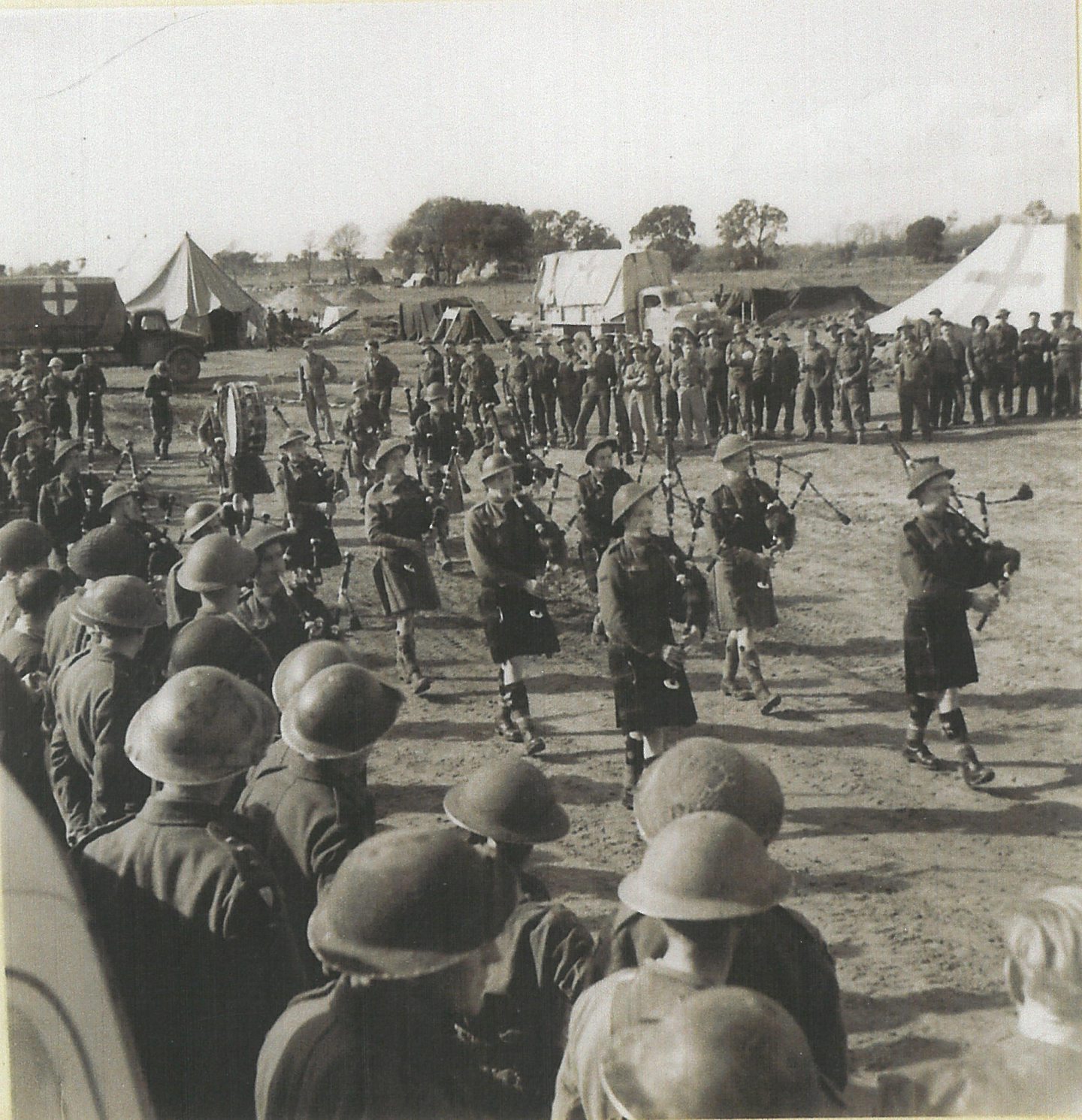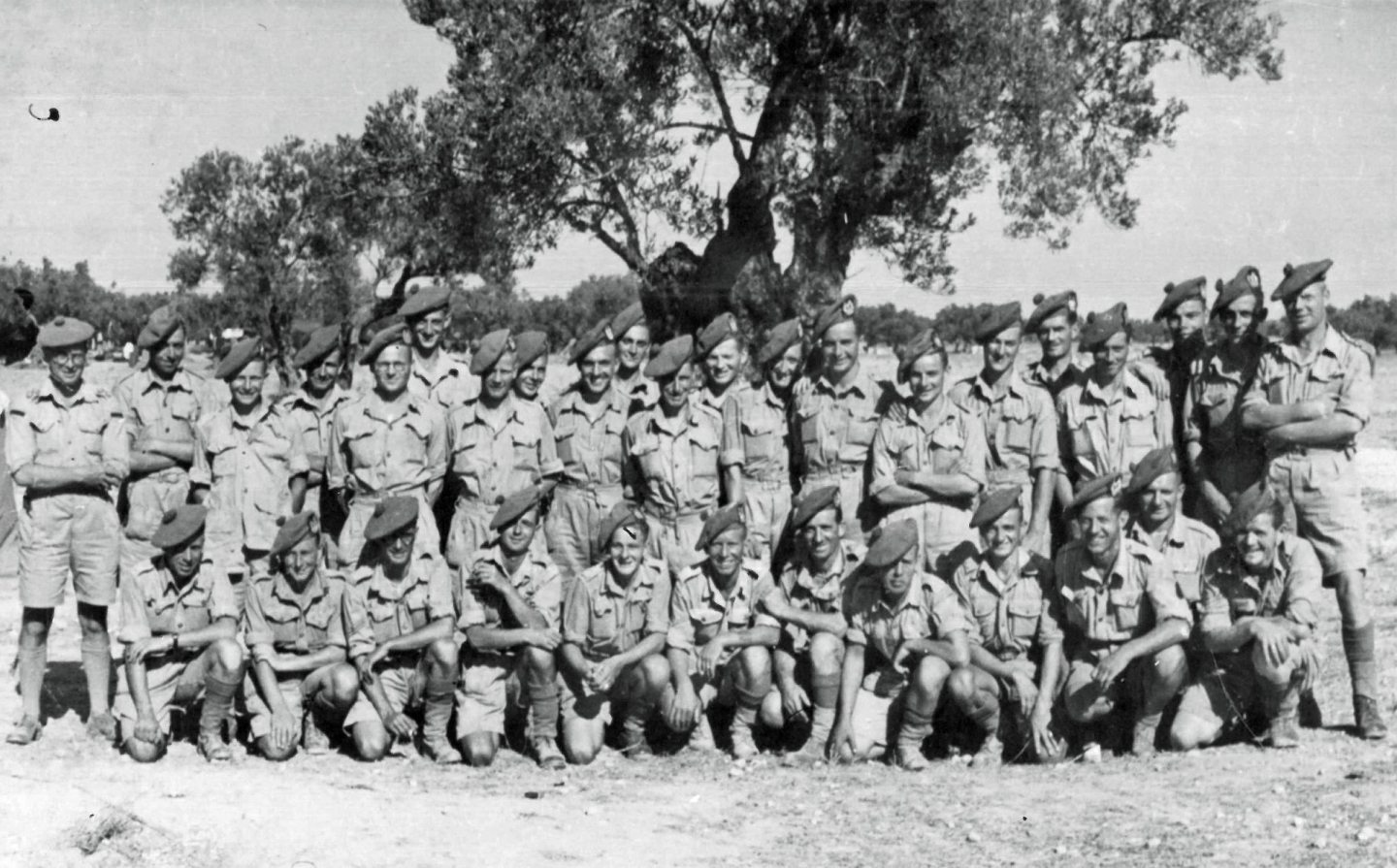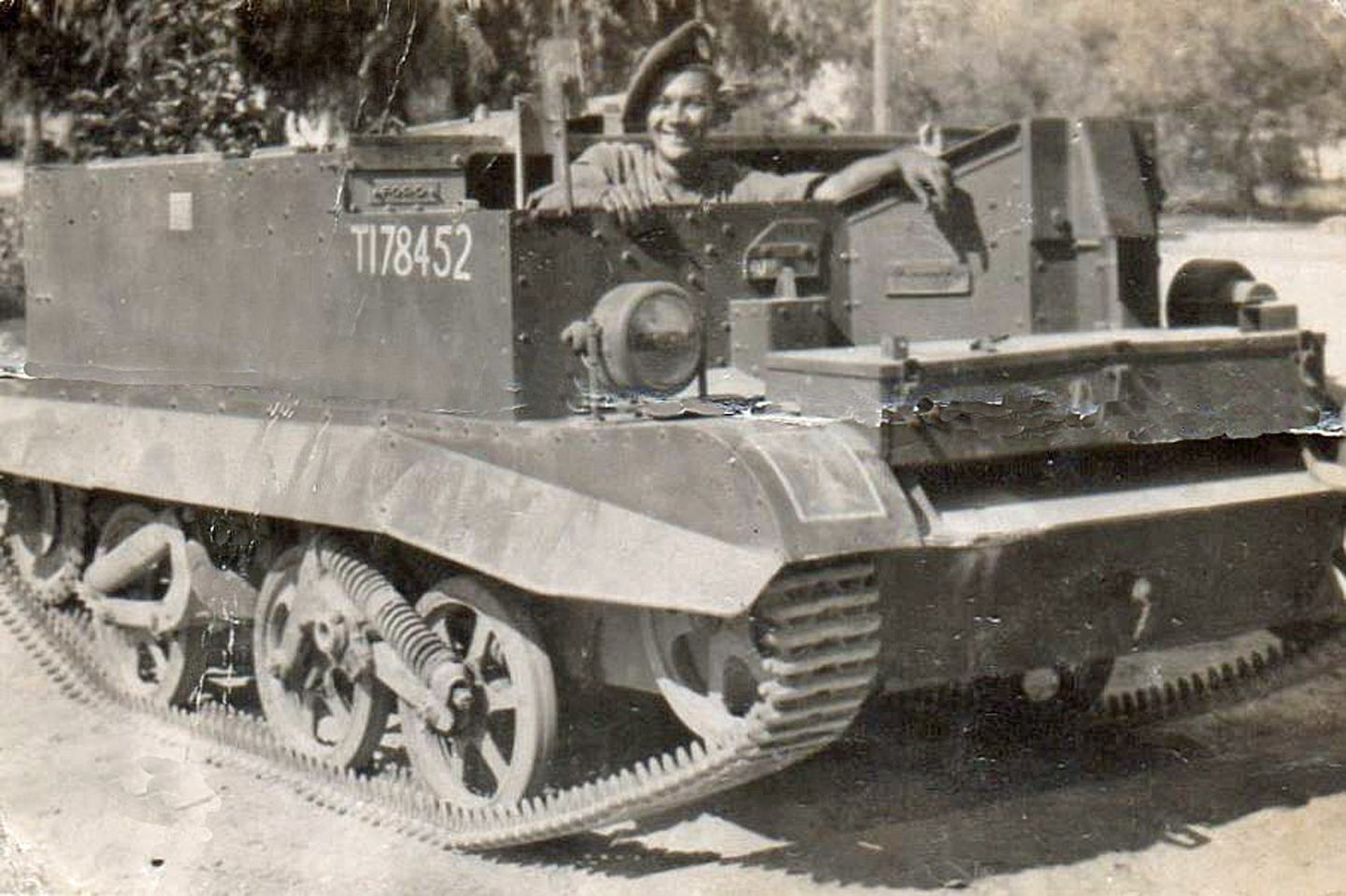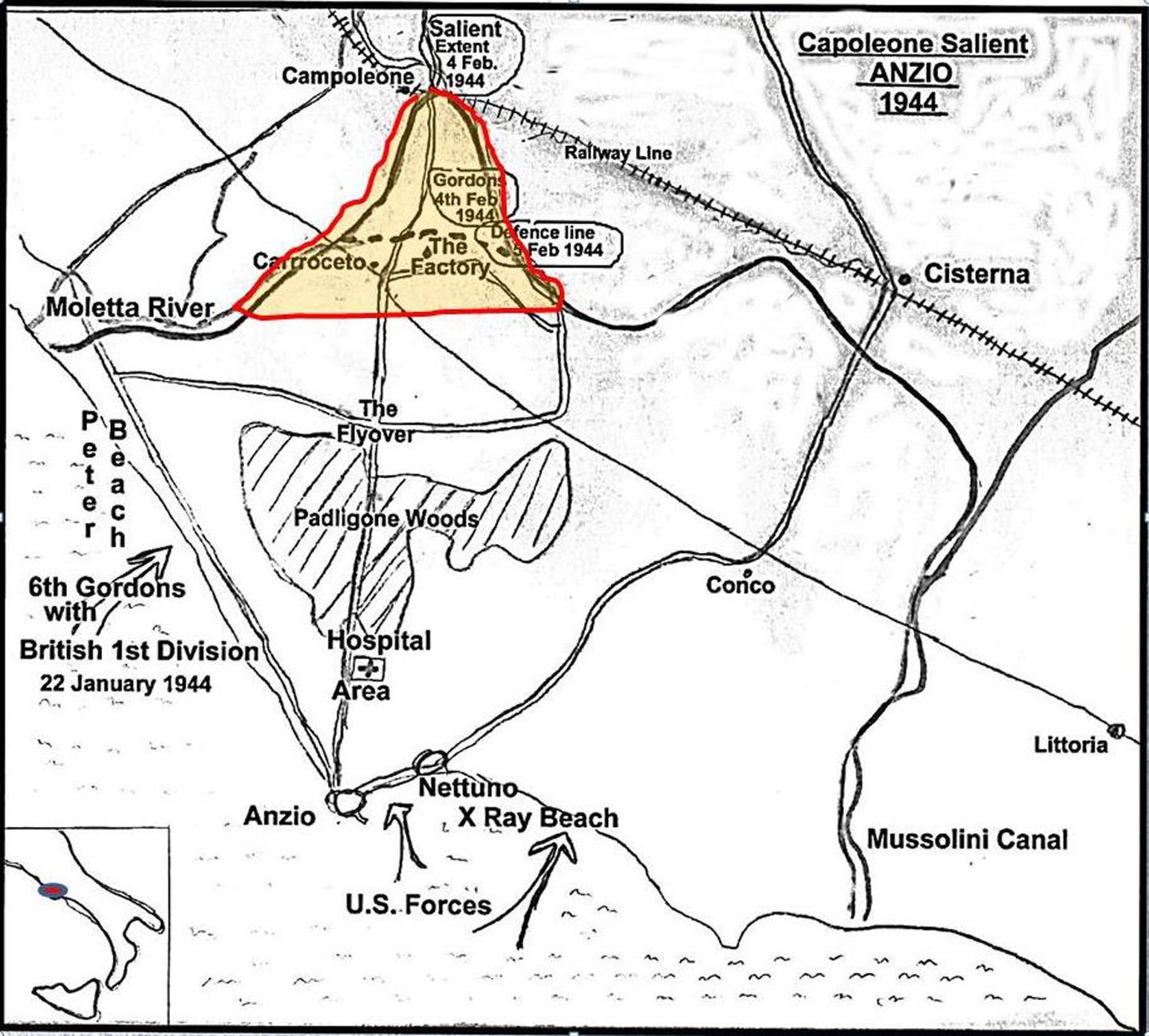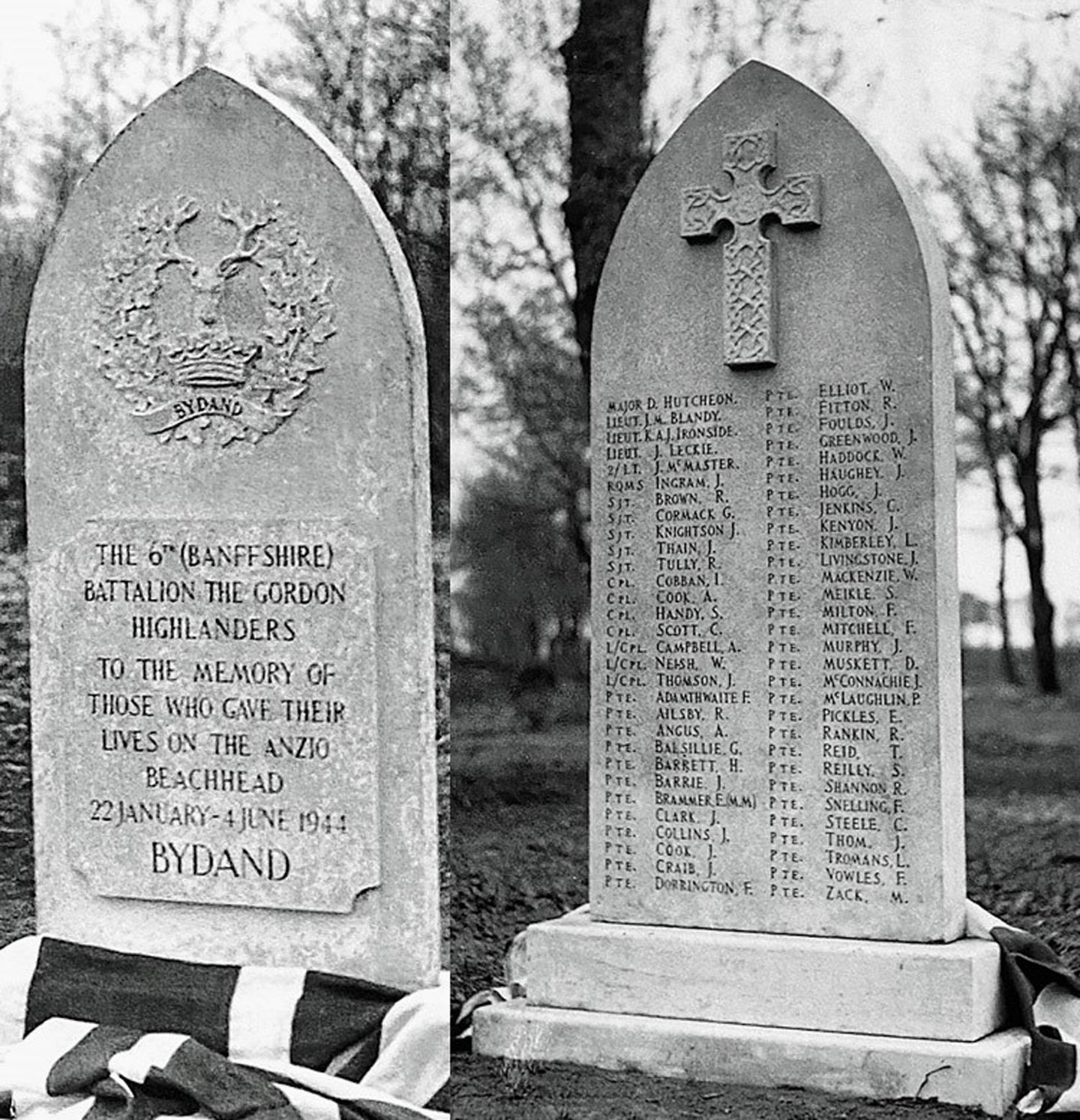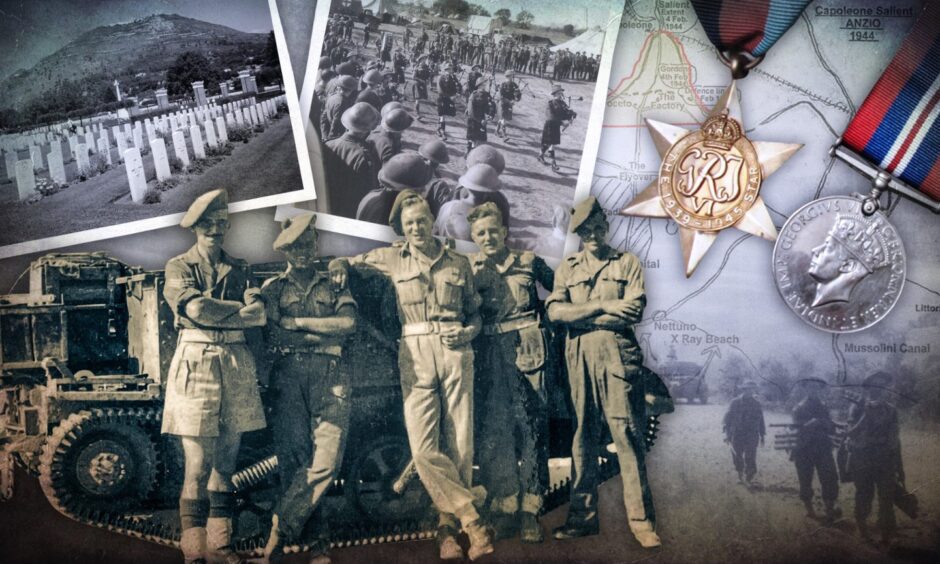
It was one of the bloodiest campaigns of the Second World War; the battle of Anzio on Italian soil which claimed a horrific death toll for four months.
Finally, towards the end of May 1944, the Allies broke out of the bridgehead and Rome was liberated on June 4. And a mixed pipe band, led by members of the 6th Battalion Gordon Highlanders, was in the vanguard of the raucous victory parade.
One of the tunes they played was The Shores of Anzio, composed by Frank Stewart from Dufftown. Back home in Scotland, the cinema newsreels showed the events on the big screen and Piper Alex Keith’s wife proudly watched the footage in Buckie cinema, while Piper Tom Smith’s wife was equally delighted to witness her beloved perform in front of a plethora of jubilant Italians from the comfort of Keith picture house.
They were understandably elated. After all, neither had seen their husbands for more than a year and had no idea of whether they were alive or dead, incarcerated or injured.
Yet, there were many other loved ones in the north-east who were not so blessed and families who never saw their sons and husbands, uncles and nephews come back.
Powerful picture of citizen soldiers
Stewart Mitchell, a historian and volunteer researcher at the Gordon Highlanders Museum in Aberdeen, has written a new book, Fighting Through to Anzio, which paints a powerful picture of the losses sustained by two battalions comprised of citizen soldiers or so-called “weekend warriors”, whose ranks were augmented by young conscripts.
Yet, if these men of The Gordon Highlanders (6th Battalion and 1st Battalion London Scottish) were often inexperienced, they were far from deficient in gallantry, resolve and resilience as they made their way through Sicily and on to Italian soil in October 1943, where they were thrown into the “meat grinder” of the battle for Monte Cassino.
They fought with huge courage
It was soon obvious there would be no quick triumph as both sides dug in for the long haul. On the night of January 23, in a company attack on the Damiano Ridge, all of the officers and senior NCOs became casualties. Five men were advancing up the steep slope in the darkness when an enemy heavy machine gun opened fire.
Without hesitation, George Mitchell charged up the hill, on his own, through intense Spandau fire, reached the enemy position, shot one German and bayonetted the other.
He went on, to silence three other German strong points, killing or capturing the occupants. But, a short time later, a German prisoner picked up a rifle and shot and killed Mitchell, who was posthumously awarded the Victoria Cross.
This was the only VC given to any Gordon Highlander during the Second World War with just 22 awarded to the entire army during the Italian campaign.
But it summed up the courage shown by so many of the troops, even as the casualty list mounted and the graves in Italian cemeteries gradually became full of Scottish names.
Recounting sad losses
Mr Mitchell’s work recounts how one of the saddest losses was the twins, Thomas and John Cairncross, from Newburgh, in Fife, who were with the London Scottish (Gordon Highlanders) when they perished together at Anzio, aged just 19.
Elsewhere, Sergeant John Thom, from Huntly, Aberdeenshire, was given special leave to meet his older brother George, who was also serving with the United States Army and had emigrated to New Jersey 14 years earlier.
The brothers had a lot to talk about, but, sadly, there was no time for the conversations they were craving.
Instead, just two days after their reunion, George was fatally wounded.
A lottery as to who lived or died
In these circumstances, a desperate brand of gallows humour flourished amid the slaughter. Captain William Dallas, originally from Buckie, was leading a patrol which was ambushed and his men were killed, while he was seriously wounded.
He was eventually picked up by a German tank, which nearly ran him over, and taken to a German field hospital. They operated on him without any anaesthetic because the Germans had run out of supplies. After his emergency treatment, he was sent by train to a German PoW camp which was attacked by an American P-38 bomber.
He joked later that the Americans had come closer to killing him than the Germans.
Gordon Highlanders played major role in battle
There wasn’t much to laugh about for those at the sharp end, but Mr Mitchell is in no doubt about the significant impact these soldiers made during the hostilities.
He told me: “These two Gordon Highlanders battalions played a major role in the battle of Anzio. Just under two weeks after the amphibious landings, the Germans mounted a massive counter-attack.
“The defending units, adjacent to the 6th Gordons, were over-run which exposed the Gordons to a direct attack by German Tiger tanks and infantry. However, despite sustaining almost 400 casualties, they held on until they were reinforced by their ‘Regimental brethren’, the 1st Battalion London Scottish, (Gordon Highlanders).
“They then counter-attacked and suffered more than 200 casualties in the process, but prevented the Germans breaking through, which would have been catastrophic.”
He added: “There were so many poignant stories that it really brought home to me how devastating for ordinary families war is.
“Isabella Milton was a bride of just 17 days when she waved her husband off from Keith in Banffshire, in 1939. She had hardly seen him in the intervening period when the news came that Francis had been killed at Anzio.
“She was still grieving the death of her brother, William Mackie, who was killed in Singapore while serving with the 2nd Gordons and there had also been no news of her husband’s brother, John, who was missing after the fall of Singapore.
The scale of sacrifice was huge
“In the space of just two days at Anzio, the Gordons had some 600 casualties, killed, wounded and captured.
“We can say that 21 of those killed were from Aberdeen, Aberdeenshire and Banffshire with others from nearby Moray, Angus and the Highlands.
“It isn’t possible to say how many of the others were from the north east area as we don’t know their addresses, just their names. But they went over there to fight for the Allies and we should never forget how many of them laid down their lives.”
Tribute to brave soldiers
Many stories from these pages stick in the mind. Such as when it was discovered that, in a draft of men joining the London Scottish, that Private David Allan, from Aberdeen, was only 16 years old. He couldn’t be a combatant, so he became a stretcher bearer and poured himself into that role with distinction.
Yet, when a mine subsequently exploded, it killed two men and fatally wounded David.
He was the youngest Gordon Highlander to perish during the whole of the Second World War. And Fighting Through to Anzio is a fitting tribute to these brave lads.
The book will be launched at the museum on Thursday, October 26 at 11am. Anybody wishing to attend the event can find out more at:
gordonhighlanders.com/fightingthroughtoanzio/
